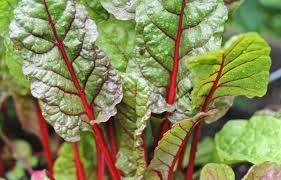As it gets warmer and we have more sunny days, I can almost taste all those fresh vegetables from my garden. While it is still too early to plant some vegetables, there are some varieties of veggies that tolerate, even love the cold. They thrive in early spring’s cold soil temperatures, frost or even snow. Most of these grow great in containers as well as in the garden. And they have two growing seasons! While cold-crops will not withstand the heat of the mid-summer months, they can be planted not only in the early-spring, but also in the fall! If you’ve never grown cold crops, or even if you’ve never grown any vegetables, we recommend giving cold crop gardening a try. It’s an easy introduction to novice vegetable gardeners and it’s a great way to extend the veggie gardening season for the summer-time farmers.
To maximize our short growing season here in Michigan, we can plant cool weather vegetables in the spring (April) and in the late summer (mid-August/September). Our biggest challenge in southwest Michigan is our temperature which moves quickly from very cold to very warm. There are many varieties that prefer cool weather. Many vegetables such as carrots, broccoli, cauliflower and Brussels sprouts produce their best flavor when they mature during the sunny days and cool nights.
Prepare your soil; testing to determine any amendments it may require. Usually soil can be worked March – April depending on temperature and moisture. Check by grabbing a handful of soil and squeezing. If it crumbles when you open your hand it is ready to work.
The majority of cool weather varieties can be planted beginning April 1st with the exception of potatoes (around April 20th).
Here is a list of vegetables that can be grown and harvested twice in one season in southwest Michigan:
Beans-Snap
Kohlrabi
Beets
Lettuce-Head & Leaf
Broccoli
Mustard
Brussels sprouts
Onions- Seeds, Sets, Transplants
Cabbage
Parsnips
Carrots
Peas
Cauliflower
Radishes
Chinese Cabbage
Spinach
Collards
Swiss Chard
Turnips
For your late season crop, daytime temperatures should still be 60 to 80 degrees with night temperatures above 40 degrees. Be prepared for frost. Cool weather vegetables will tolerate some frost but you can cover plants with newspaper or sheets if you prefer. Be sure to remove the covers once the sun comes up.


